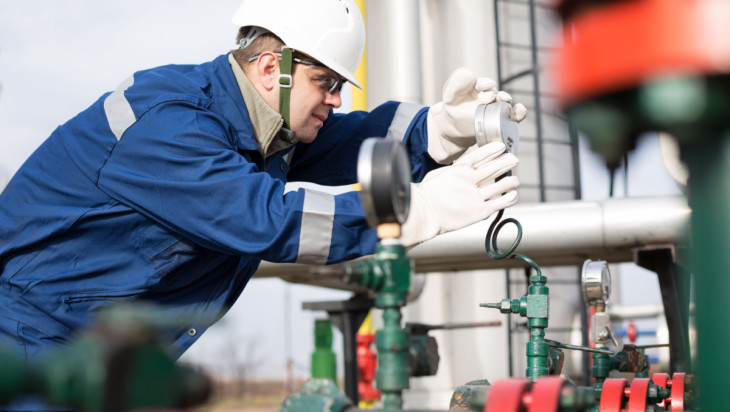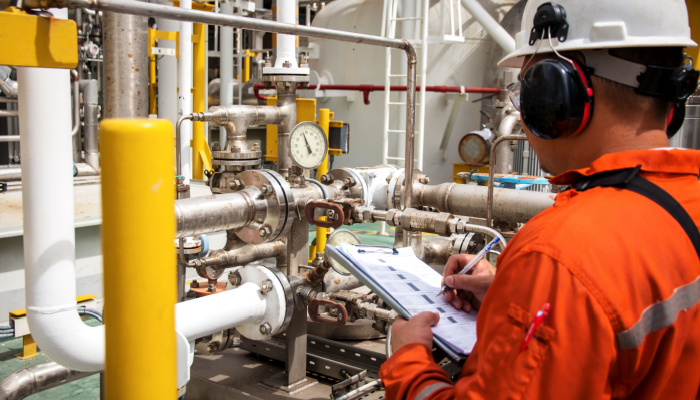
Gas is one of the essentials for all buildings, whether residential or non-residential. Using gas as a source of energy is much beneficial but at the same time, it involves various threats and risks. That's why the relevant authorities in almost every country have formulated multiple laws to regulate the use of gas in all residential and non-residential properties.
As an owner of a commercial property, it is your moral and legal responsibility to ensure the safety of the occupants of your property against any possible risk associated with the use of gas. Under the prevailing laws in the UK, all property owners, landlords, and property managers must get their property inspected periodically for gas safety.
They must also produce a valid gas safety certificate while renting commercial property. This periodic gas safety inspection aims to ensure that all the gas installations and appliances are safe enough and carry no potential threats.
Gas is a highly inflammable material. Its vulnerability against catching fire instantly when exposed to a flame makes it quite dangerous. Apart from catching an instant fire, it also causes various medical conditions in a human if exposed to gas leakage. The explosion is yet another serious threat associated with the use of gas. Since burning gas consumes oxygen and generates carbon dioxide, it may also have serious consequences for human health.
All these potential threats associated with gas have forced the authorities to introduce the concept of gas safety. Gas safety means using gas installations and appliances in a way that eliminates the possibility of any mishaps or accidents. To achieve this target, one has to ensure that the gas appliances are installed perfectly, all the gas pipelines are correctly fitted, and there is no gas leakage from any pipes, joints, or appliances.
Hence all gas-related work must be done by a qualified gas safety engineer registered with a gas-safe register.
The gas safe register was initiated in April 2009 under an agreement with Health and Safety Executive (HSE), replacing the previously operating gas registration scheme, CORGI, in the UK. The gas safe register maintains the registration of qualified gas engineers authorized to carry out gas-related work in the UK.
The credentials of all such registered gas engineers are uploaded on the official website of the gas safe register. The gas safe register also issues an identity card carrying their photograph and other relevant information. Only the gas engineers listed on the official gas safe register website can issue gas safety certificates after inspecting the entire gas installations and appliances. It involves entire gas pipework and gas appliances such as burners, cookers, boilers, heaters, flues, and other gas devices.
It is an official certificate from a qualified gas engineer listed on the gas safe register. It certifies that the gas appliances and pipework are installed following the safety standards. It also guarantees that these appliances are safe for use.
The gas safety engineer thoroughly examines all appliances and gas fittings. If the engineer detects any faults, you must fix them immediately. The gas safety engineer then records all the inspection details and will give you the gas safety certificate. Normally, this certificate is in paper form but it can also be made available digitally.
Some important points to note about the gas safety certificate are:
Commercial gas safety certificates are of different types as under
The gas safety certificate is valid for one year from the date of first issuance. It needs to be renewed annually. Previously, the certificate's expiry date was considered exactly after 12 months from the issuance date. That means if the certificate was issued on 15 July 2022, it will expire on 14th of July 2023. But if you get it renewed on say, 28th June 2023, the next expiry date would have been 27th June 2024.
A few years back, the relevant law was amended to overcome this lacuna. After this amendment, the certificate's expiry date now remains constant. Hence, in the above-quoted example, the next expiry date will be 14th July 2024, even if you get it renewed on 28th of June 2023.
It is advisable that the commercial gas safety certificate must be got renewed well before the expiry date to avoid any legal complications.

As a landlord or commercial property owner, you must get a commercial gas safety certificate in the following instances.
Being a commercial property owner, it is your responsibility to produce gas safety certificates for your tenants:
Annual gas safety check for commercial properties involves the following compulsory inspections.
If the engineer thinks that your gas pipe network or appliances are not up to the standard and may harm your tenants, he may ask you to get the main gas supply disconnected. In such an event, you must immediately remove the faults and faulty appliances.
A gas safety certificate is a complete record of the gas appliances installed on your property. It carries full details of gas appliances inspected with their current status.
Mainly, you can find the following information on a gas safety certificate.
The basic law regulating gas use in the UK's residential or commercial properties is known as “The Gas Safety (Installation and Use) Regulations 1998". It was introduced in October 1998. As per the provisions of the law, all landlords and property managers are bound to get the gas installations and appliances inspected for gas safety annually. The aim is to ensure the safety of the properties and occupants of that property. They are further bound by this law to obtain a gas safety certificate for their respective properties.
Per this law, the gas safety certificate remains valid for 12 months. It needs to be renewed before expiry. That means the landlords must get it continued in the 11th month of the current gas safety certificate. Its practical implication resulted in 11 inspections in 10 years. To remove this ambiguity, the law was amended in April 2018, which is referred to as “The Gas Safety (Installation and Use) (Amendment) Regulations 2018”.
After this amendment, the expiry date remains constant, according to the previous gas safety certificate, even if the inspection is carried out in the 10th or 11th month of the current certificate, as explained above in detail.
These are separate sets of regulations mainly related to the transportation or conveyance of gas through pipelines. The "Gas Safety (Management) Regulations 1996” is the basic law dealing with gas safety management. This law has recently been amended under the “The Gas Safety (Management) (Amendment) Regulations 2023", which came into force in April 2023.
These regulations mainly govern gas transportation through a pipe network from the gas processing plants to the end users. It specifies the gas's density, combustion factor, and oxygen content. Though not directly related to the gas safety certificate and inspection, it is important for consumers, especially the commercial property owner, to know these regulations. It deals with the quality of the gas supplied on their properties.
A quick answer to this very important question is yes. All commercial properties are bound by the rules and regulations to have a valid gas safety certificate. The law that binds you as a commercial property owner is referred to as “The Gas Safety (Installation and Use) Regulations 1998”, which was further amended in 2018 under the name “The Gas Safety (Installation and Use) (Amendment) Regulations 2018”.
The basic law deals with the safety standards of the gas pipe network and all gas appliances installed on your property, while the amendment is about the certificate's expiry date, as already explained in detail.
According to these regulations, it is the legal responsibility of property owners or property managers to ensure the safety of their tenants. For this purpose, they have been responsible for obtaining the required gas safety certificate and providing a copy to their tenants.
If a commercial property owner or manager fails to fulfill this legal responsibility due to any reason, he may face serious consequences such as:
The property's and its occupants' safety are your prime responsibility if you are a commercial property owner. Gas safety is one of the core responsibilities of a commercial property owner. That's why the law binds you to undertake an annual gas safety check on your property and obtain a valid gas safety certificate.
Since the law imposes this responsibility on the property owners, you will have to face the consequences if you fail to get it done as per the provisions of the relevant law. The repercussions may be quite serious, including fines and imprisonment. Getting the annual gas safety check done on your property may cost you a little, but it can save you from very costly and serious consequences. So don’t forget to get a gas safety certificate for your commercial property.
Fill the required information to order a gas safety certificate instantly.
Are you curious about your Gas Safety Certificate? With these simple steps, learn how to check its status and ensure your peace of mind.
Find out why your boiler is vibrating loudly. Explore causes, troubleshooting tips, and the importance of prompt repairs for a quiet and efficient heating system at home.
Gas engineers perform a gas safety check to ensure your gas appliances are safe. Read to learn what more you can expect from the gas safety check.
Learn about the importance of gas safety certificates for landlords and the legal consequences of not having a valid certificate.
Know your tenant rights: How long can a UK landlord leave you without hot water? Stay informed, assert your rights.
Every landlord in the UK is legally bound to follow gas safety regulations as per the Gas Safety (Installations and Use) Regulations 1998.
Fill out the following enquiry form and we will contact you as soon as possible.